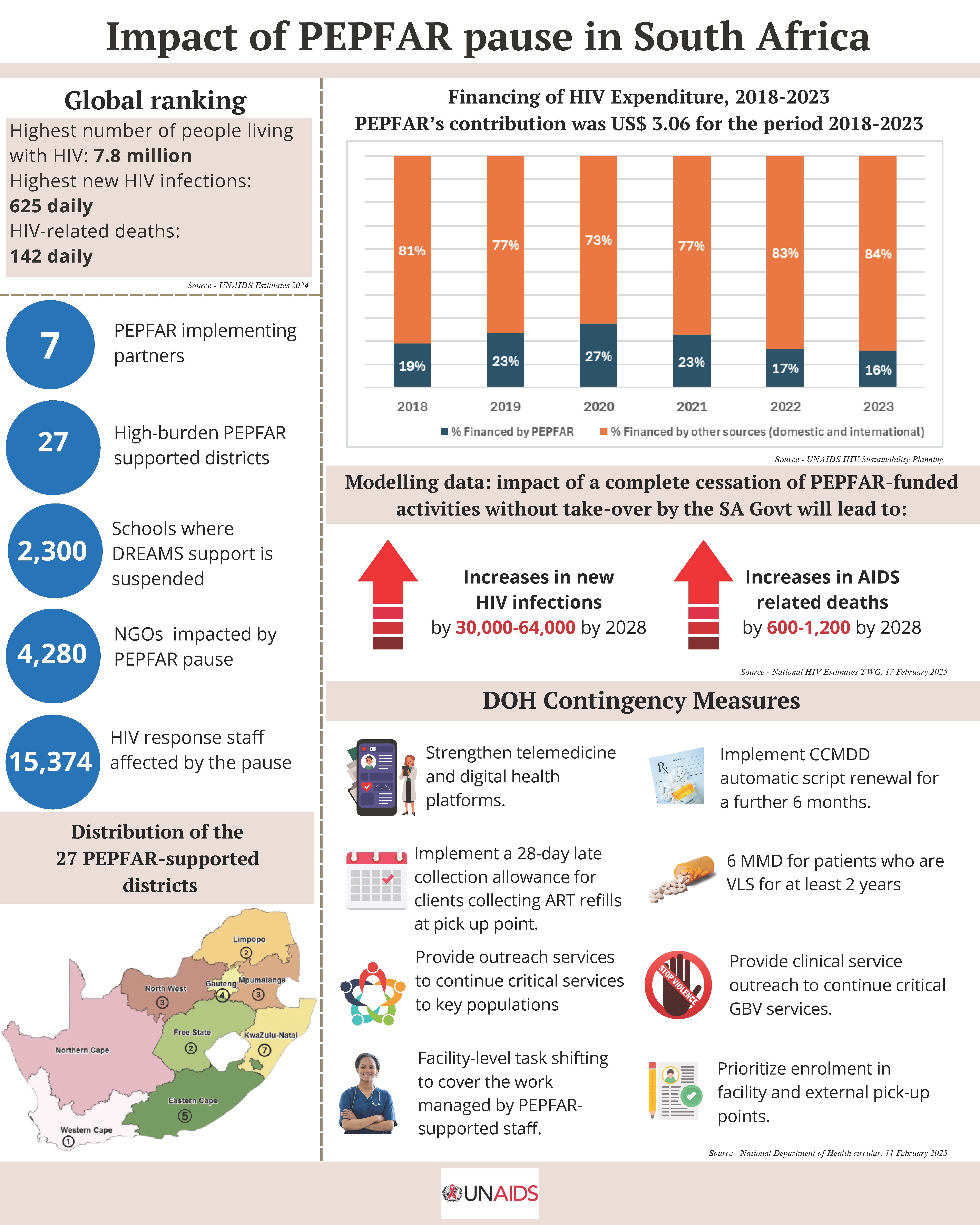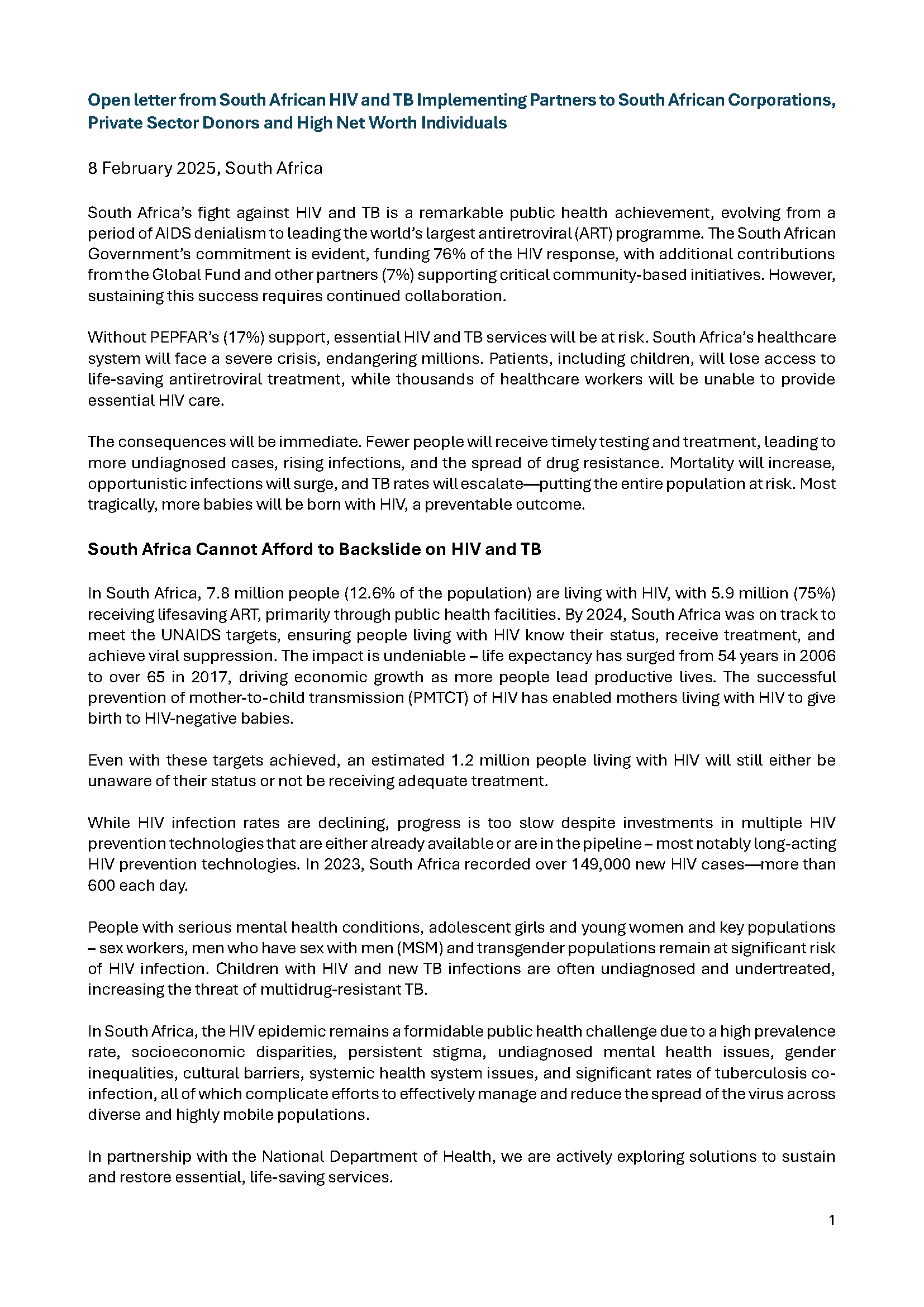unaids.org
UNAIDS




Feature Story
Comprehensive update on HIV programmes in South Africa
25 February 2025
25 February 2025 25 February 2025Due to the U.S. Government’s freeze of foreign assistance, 15,374 PEPFAR-funded HIV response staff a...
Due to the U.S. Government’s freeze of foreign assistance, 15,374 PEPFAR-funded HIV response staff across national and 27 priority districts have been affected, with an estimated HR cost of ZAR 4.6 billion (~USD 250 million), and approximately 222,000 people living with HIV, including 7,445 children under the age of 15, face disruptions in their daily antiretroviral therapy supplies.
Documented Impact on Services as of 20 February
- PEPFAR-funded Projects: Last week, PEPFAR-funded projects in South Africa received waiver letters, prompting a review of their activities. The CDC has communicated with beneficiary organizations, while USAID-supported partners remain closed.
- Service Disruptions: The closure of the TB/HIV Care clinic in Tshwane, Pretoria, has significantly impacted people living with HIV, particularly the homeless, of whom 70% are drug users.
- The halt in US Government support has led to a pause in the Ritshidze (“Saving Our Lives”) Community-led monitoring project. Established in 2019, the project monitors more than 400 public clinics and community healthcare centers, located in 27 priority districts and 8 provinces of South Africa. The facilities were chosen to cover nearly half of all people living with HIV on treatment in the country, with a focus on sites with large treatment cohorts and where the data show poor linkage and retention rates.
Human Rights, Key, and Vulnerable Populations
- People who use drugs: Service disruptions pose a high risk of needle sharing and antiretroviral interruptions due to the lack of referral letters required by some government facilities. This increases the risk of HIV viral rebound and transmission among the estimated 80,000 people who use drugs in the country.
- LGBTQ+ communities: Facilities like Engage Men’s Health, which support gay and bisexual men and men who have sex with men, remain closed. This closure heightens the risk of stigma, discrimination, and potential resurgence of new HIV infections among these marginalized populations.
Government convening and mitigation measures
- ART Dispensation: The Department of Health has implemented a 6-month antiretroviral therapy dispensation for eligible patients to reduce clinic visits and ease the workload on health workers.
- Telemedicine and Digital Health: Efforts are being made to strengthen telemedicine and digital health platforms for HIV prevention and treatment services.
- Private Sector and Civil Society Partnerships: The Department of Health is encouraging partnerships to support key populations' HIV services.
- Diplomatic Discussions: President Ramaphosa has convened a high-level delegation for diplomatic discussions with China and Russia.
- Civil Society Impact, Resilience, and Response
- NGO Closures: NGOs reliant on USAID funding remain closed, affecting community-based programs and outreach services, including HIV testing, in USAID-supported districts.
- Research and Clinical Trials: South African universities and research institutions are concerned about the impact of the funding freeze on research and clinical trials. There is uncertainty about research funding, with fears that NIH-backed projects could be at risk.





